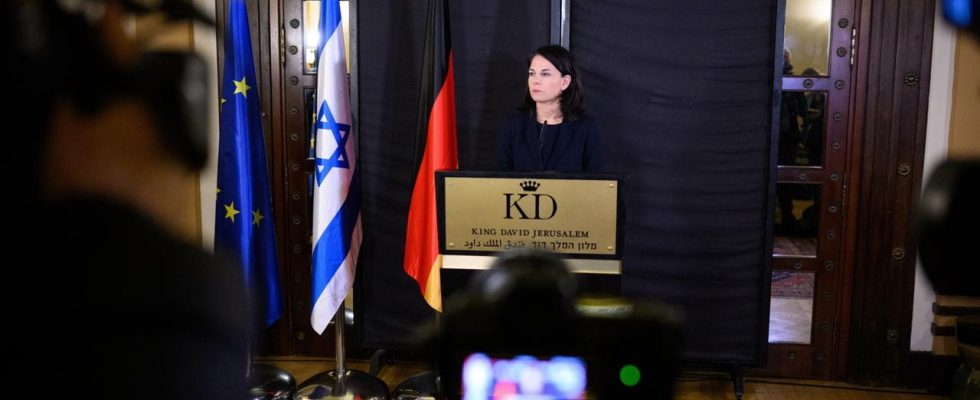Foreign Minister Baerbock traveled to Israel again – to one of the many international hot spots at the moment. But how much does the federal government pull together when it comes to foreign policy?
Just a year ago, the distribution of roles in foreign policy often looked like this: Here the Chancellor, mischievous and hesitant, sometimes silent. And there is the Foreign Minister, who speaks plainly, sometimes leaning too far out of the window – which also repeatedly upsets her own Chancellor.
It now seems different: Olaf Scholz (SPD) and Annalena Baerbock (Greens) are staying the course, together and obviously better coordinated. Especially in Middle East politics. When the Foreign Minister – as in Jerusalem – represents the Federal Government’s line: “There is no either/here, only a both/and. The security of the people in Israel from Hamas’ terror is just as important as the survival of the Palestinians . Both belong together.”
Concerns about a “humanitarian catastrophe” in Rafah
Annalena Baerbock is in Israel for the fifth time since the Hamas terrorist attack. It is always a balancing act under the sign of German reasons of state: On the one hand, Baerbock then emphasizes Israel’s right to defend itself against Hamas. And at the same time, Baerbock is increasingly urging Israel to respect international law and protect the people in Gaza – especially in Rafah, in the south of the Gaza Strip. More than a million Palestinian refugees don’t know where to go. “If the Israeli army were to launch an offensive on Rafah under these conditions, it would be a humanitarian catastrophe,” fears Baerbock. “People need safe places and safe corridors to avoid being further caught in the crossfire.”
In view of the immense concerns, the Foreign Minister and the Chancellor have found a common language. Olaf Scholz sounded a similar tone during his visit to Washington last week when he demanded of the Israeli government: “For now in this war, that means that the conduct of the war must meet our own standards, that humanitarian aid must reach Gaza on a much larger scale to a greater extent than is the case today.”
Scholz and Baerbock seem more coordinated
Whether during the Chancellor’s visit to the USA or now on the Foreign Minister’s trip to Israel: the other big questions of the year are always on the minds of both of them: What if Donald Trump becomes US President again? What if Ukraine will soon no longer be able to resist the Russian war of aggression?
Scholz and Baerbock are now apparently coordinating more closely on these issues too: They are trying to establish more contacts in the USA in order to be better prepared in the event of a Trump comeback. Or when they both demand more support for Ukraine – now without public dissent.
Ukraine, Trump, the Middle East – while the world seems to be slipping from one crisis to the next, at least the Chancellor and the Foreign Minister are now pulling more together. Whether German foreign policy achieves more as a result is another matter.

